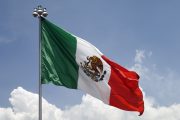
The United Nations, touted by progressives for 60 years as the last best hope of mankind, has done almost no good anywhere at any time. Since the inception of the world body — comprised of a hodge-podge of thuggish dictatorships, self-righteous and anti-American European democracies, communist regimes, and nations which hate each other — it is very difficult to find any situation in which the UN has actually made things better.
On the other hand, the evil done in the name of global government has been profound. Fifty years ago, when Katanga, in the nation now known as Zaire, wanted to secede, the United Nations sent troops to support Marxist Patrice Lumumba. These “peacekeepers” bombed and destroyed churches and hospitals, and even killed Georges Olivet of the Swiss Red Cross, traveling in a clearly marked vehicle. The UN troops did nothing to restrain the terrorism of Congolese troops who murdered, raped, and even reportedly ate some of the wretched Katanga victims of United Nations “help.”
Now researchers are questioning whether United Nations “peacekeepers” may have actually brought cholera into Haiti when they entered that beleaguered nation to help make things better. Two public health experts, including an official of the United Nations, have found that the strain of cholera currently killing Haitians has its origin in South Asia. Nepalese soldiers used by the United Nations in Haiti have a strain of cholera distinctive to a region of Nepal. John Mekalanos, an expert in cholera and the chairman of Harvard’s microbiology department, noted:
The organism that is causing the disease is very uncharacteristic of [Haiti and the Caribbean], and is quite characteristic of the region from where the soldiers in the base came. I don’t see there is any way to avoid the conclusion that an unfortunate and presumably accidental introduction of the organism occurred.
Mekalanos believes that Nepalese soldiers posted near the infected Artibonite River in Nepal brought this deadly strain of cholera into Haiti when they entered the country in October. Cholera has been previously unknown in Haiti. Mekalanos also questioned tests prepared by the United Nations that indicated no presence of cholera. He suggested that politics, not medicine, may be at work.
Haitians have reacted with predictable anger. Hundreds have protested the presence of the UN Nepalese troops, believing they brought in the disease that has claimed hundreds of Haitian lives and afflicted thousands of others. It would have been hard to make Haiti — for years one of the most benighted places on earth — any worse, but the UN seems to have found a way, not only bringing a deadly disease to its shores, apparently, but compounding the harm by concealing evidence of the origin of this offense, thus hampering the efforts of doctors and hospitals to respond.
If there is a more perverse maxim than, “I’m from the government. I’m here to help you,” then surely it is, “I’m from the United Nations. I’m here to help you.” During the last horrific six decades of the presence of this ghastly institution, it has committed many crimes. Even in the worst places on earth, such as Haiti, the United Nations manages to make things even worse.



